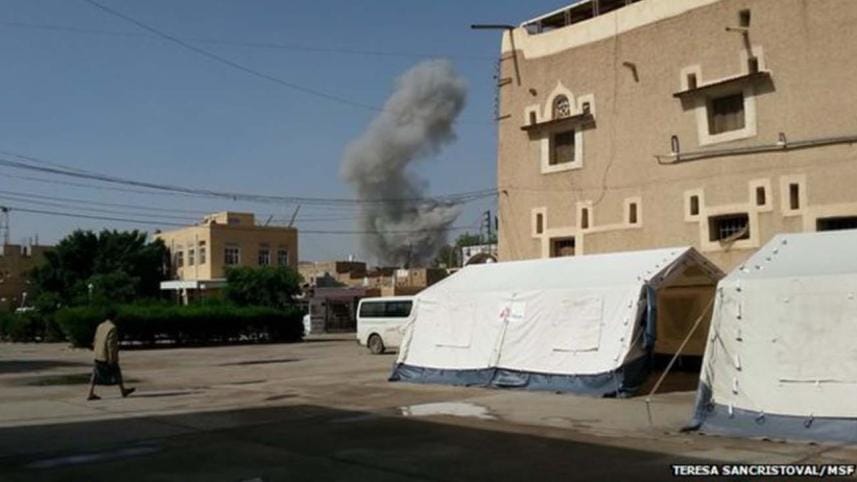Yemen inches towards ceasefire

Rebels in Yemen say they will respond "positively" to a ceasefire offer by the Saudi-led coalition that has been carrying out air strikes against them.
Saudi Arabia has offered a five-day truce starting on Tuesday, to allow the delivery of humanitarian supplies.
The air raids have killed at least 1,400 people - mostly civilians - in recent weeks, the UN says.
The Shia Houthi rebels from northern Yemen launched an offensive last year and now control much of the country.
The Saudi-led coalition aims to restore the government of exiled President Abdrabbuh Mansour Hadi - who fled the rebel-controlled capital, Sanaa, in February.
On Friday Saudi Arabia offered the five-day truce starting on Tuesday - but warned that it would respond to any violations.
Early on Sunday, the rebels' al-Massirah TV channel said they would "deal positively with any efforts, calls or measures that would help end the suffering".
A spokesman for renegade Yemeni troops allied to the Houthis has already said they fully accepted the proposal.
On 21 April the Saudi-led coalition announced an end to its bombing campaign in Yemen, but resumed air strikes within hours.


Hospital bombed
Meanwhile the United has highlighted the plight of civilians in the northern city of Saada, where the coalition has conducted raids in recent days.
The UN humanitarian co-ordinator for Yemen, Johannes Van Der Klauuw, many civilians were "effectively trapped in Saada" because of fuel shortages.
Teresa Sancristoval, who works for the medical charity MSF at a hospital in the city, described intense bombing on Friday night.
She said her team had been treating women who were in labour, but five of them fled because of the intensity of the air strikes.
Further air strikes were reported on Sunday.
The Saudi-led coalition says it regards Saada a "military zone". On Friday it dropped leaflets warning residents to leave.
At the weekend strikes targeted the home of former President Ali Abdullah Saleh in Sanaa. The former president - who is allied to the rebels - is said to be unharmed.
Sunni Muslim Saudi Arabia has accused Shia rival Iran of arming the Houthis, a charge Iran and the Houthis deny.
Houthis - The Zaidi Shia Muslim rebels from the north overran Sanaa last year and then expanded their control. They want to replace Mr Hadi, whose government they say is corrupt. The US alleges Iran is providing military assistance to the rebels.
Ali Abdullah Saleh - Military units loyal to the former president - forced to hand over power in 2011 after mass protests - are fighting alongside the Houthis.
Abdrabbuh Mansour Hadi - The president fled abroad in March as the rebels advanced on Aden, where he had taken refuge in February. Loyal soldiers, Sunni Muslim tribesmen and Southern separatists have formed militia to fight the rebels.
Saudi-led coalition - A US-backed coalition of nine, mostly Sunni Arab states says it is seeking to "defend the legitimate government" of Mr Hadi.
Al-Qaeda in the Arabian Peninsula - AQAP opposes both the Houthis and President Hadi. A rival affiliate of Islamic State has also recently emerged.
 For all latest news, follow The Daily Star's Google News channel.
For all latest news, follow The Daily Star's Google News channel.
Comments